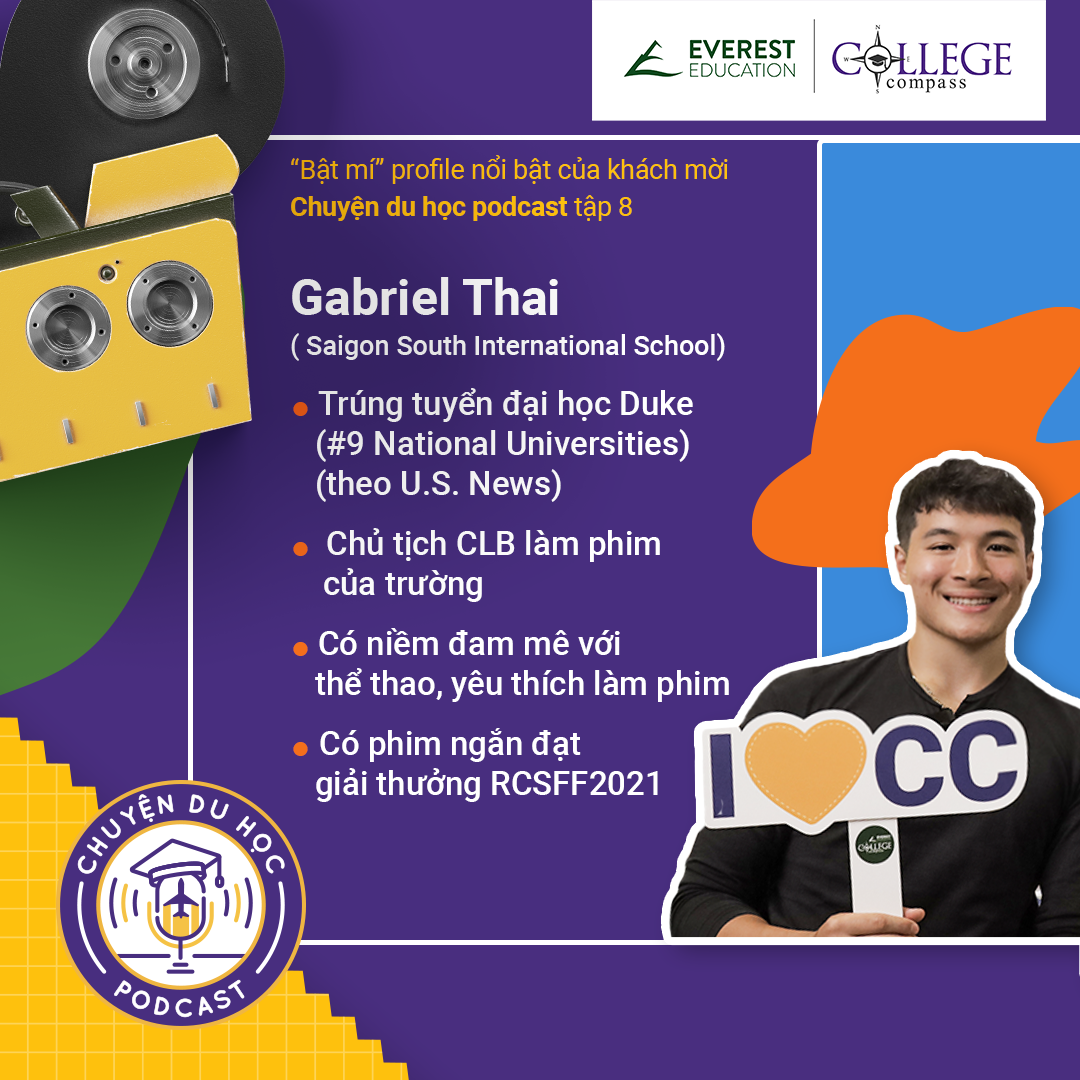Applying for college requires students to meet a lot of expectations, both inside and outside the classroom. We all know what colleges expect of us from an academic standpoint: excellent grades on tests and assignments, high scores in competitive exams and brilliant letters of recommendation from our teachers.
However, a perfect academic profile can not portrait the full picture of who you really are. Yes, colleges – especially top colleges – want bright students. But even more, they want bright, well–rounded students. That’s where your extracurricular activities come in.
Extracurriculars are a critical part of your university application, as they demonstrate who you are outside of the classroom and provide an opportunity to showcase your leadership skills and community involvement. This article will highlight some important key points on why extracurricular activities are a must for high school students, and how to choose the suitable activities that fit your characteristics and interests.
What Are Extracurricular Activities?
Before we dive into the benefits of extracurricular activities for college hopefuls, let’s break down what they are within the context of your university admissions journey. By definition, the word “extracurricular” can be broken down into its roots for a literal explanation: “extra” means “outside,” and “curricular” refers to all of the work you do in the classroom. So extracurricular activities are just activities that students do outside of class.
When it comes to college applications, though, extracurriculars are a bit more complex than this — they require a consistent time commitment, a degree of responsibility and initiative, and in the best cases, a level of leadership not demonstrated in the classroom.
Benefits of extracurricular activities
1. Allows You to Explore and Focus Their Interests
Extracurricular activities do not exist solely to have something to put on your resume to impress admission counselors. Extracurriculars are intended to get students involved in clubs or initiatives that you are passionate about and develop skills, like organization and time management, that will carry you through high school, college, and beyond.
Participating in these activities allows you to explore yourself better, discover new interests, and even rule out activities that you thought were interesting but ended up not being a great fit.
2. Demonstrates a Specialty
When building a well-rounded class, students need to explore and focus their interests to develop a specialty – something colleges look for. Coursework is one way to develop a specialty. A student interested in STEM, for example, can take math and science classes to understand the field better, but participating in extracurriculars also related to STEM is another way to deepen that knowledge and experience. If you want to major in chemistry, a UK university is more likely to accept you if you’ve joined a chemistry club, taken extra chemistry courses at your local university and volunteered in a lab.
Again, colleges are looking to build a well-rounded class made up of specialists, and meaningful, sustained involvement in a few activities related to your core interest can go a long way toward demonstrating that specialty.
3. Shows Initiative and Leadership
Colleges aren’t just looking for academically gifted students with a specialty. They’re also looking for students who will make an impact on campus. They want students who will come to their campus and leave a lasting impression – influencing the campus culture for the better. This means admissions officers are often looking for applicants who have demonstrated initiative and leadership in other aspects of their lives – often through extracurricular involvement.
Find ways to demonstrate leadership once you find some activities that you really enjoy and align with your core interests. This can mean running for club president, organizing a fundraising drive, or simply working behind the scenes to ensure that everything your activity involves runs smoothly. Leadership and initiative come in many forms, not just having a specific title or position, so get creative with ways to become a leader and make an impact.
4. Give You Enough Materials to Tell Your Stories
At College Compass, we always see that students who are active in extracurricular activities usually have better personal statements. Through extracurriculars, you can express your point of view about the world around you. What are your values? What shaped you into the person you are today? Why is that activity important to you?
By joining extracurriculars, students will enrich their life, broaden their social connections, and learn valuable life skills and stories that you will never have without jumping in. Just like we can never make a perfect meal without great ingredients – the very 1st step to craft impressive essays – is to expose yourself to the world for good “ingredients.”
>>> See how Mr. Tony Ngo – Everest Education’s Chairman and Co-founder – mentioned his extracurricular activities in the essay sent to Harvard Business school.
Where learning meets joy
with friends and teachers who care
What Kind of Extracurricular Activities Are There?
When it comes to extracurricular activities, the options are endless – but what counts as an extra-curricular? Here are some examples of extracurricular activities you might consider joining:
- School Activities: These might include sports teams, special-interest clubs, a school newspaper, music groups and student government.
- Community Activities: Examples are community, music, art groups, and local clubs and sports teams.
- Work: Internships, summer jobs, part-time work, babysitting, delivering newspapers — it all counts.
- Volunteering: This might mean tutoring elementary school kids, helping out at the animal shelter or raising funds for a charity.
Other examples include things like student government, school publications, music or theater programs, sports, internships, shadowing programs, and more. It is never too early to start getting involved with extracurricular activities – some students start preparing for their college applications in grade school! Not only should you consider joining a few extra-curricular activities, but you should go for it!
What Are Colleges Really Looking for in Applications?
Part of the implied task of the college admissions office is to identify students who would contribute to various school clubs, interest groups, and other activities on and off-campus. As a result, there are three main things that colleges are looking for in your activities:
- Dedication: Instead of seeing you jump around from activity to activity, colleges would far prefer to see you dedicate a significant amount of time over an extended period (a few years) to one particular activity. This shows your willingness to make a commitment and your passion for what you are doing.
- Leadership: Admissions officers like to see students take control of their activities and show off their leadership skills. This could include things like founding a club, increasing participation in an activity, or leading a project like a fundraiser. Universities hope that someday their students will go on to be leaders on a larger scale in the community, and these activities are a good way for them to gauge if you have the interest and ability to do that.
- Lasting Impact: This ties in with the previous idea. Admission officers like students who will make a difference in the world and leave it better than they found it. So if you are someone who has done just that in an activity, they will be more likely to think that you are the type of student they want on their campus. Did you do something to improve a club or organization you belonged to? Did you streamline a process or innovate how your activity is done? Did you leave something better than you found it?
How Many Extracurricular Activities Do You Need?
Many students believe adding extracurriculars is a numbers game where quantity matters more than anything else. In reality, that isn’t the case. While you might have done several activities, not all of them need to be included. In fact, putting too many could have a negative impact on your application. A longer list makes it harder for the best activities to stand out.
“The Goldilocks ‘just right’ number of activities is 5 or 6, according to PrepScholar.
This is a good amount because it’s achievable for most students without being overwhelming. Fewer activities than this can show a lack of willingness to branch out and try something new while having way more than 6 activities is unsustainable for most students. When colleges see students who have 10 or more activities, they will likely assume that you either padded your resume or only showed up to your activities instead of making a real effort to be significantly involved.
In your freshman year, try out many different activities to see what you’re the most passionate about. In the sophomore year and beyond, start whittling down your activities so that you’re left with the ones you can really make an impact on. These activities can be almost anything – clubs in your school or community, sports, art, hobbies, or community service. The key is to choose one or two activities that you will focus most of your time on.
During your last years of high school, make sure that you show growth or development in these activities, take on a leadership role, or lead some initiatives. Take note of some specific accomplishments that you are proud of (don’t be too humble) and write about your application-specific details about your achievements that will make your hard work much more impressive to colleges.
How To Find Extracurricular Activities Amidst The Covid-19?
The uncertainty of the COVID-19 makes it even more difficult to find safely engage in extracurricular activities. However, as people say “Adversity is only a blessing in disguise”, we believe students can take this seeming “constraint” and view it as an opportunity to learn and grow.
In episode no.11 of Chuyện du học Podcast, our guest speaker Tim Nguyễn – MBA Harvard, former staff of Boston Consulting Group and Everest Education – suggests students using this time to “think out of the box” and “stand out of the crowd”. He also offers some ideas to seize the many opportunities available to you through the virtual world – and even found a new extracurricular by yourself.
Listen to Chuyện du học podcast with Tim Nguyễn on Youtube, Spotify, and Google Podcast.
Parting words…
Extra-curricular activities are not the only thing that college admissions officers look for, but they can play a significant role in helping colleges get a feel for who you are – to help you stand out. No doubt, as part of the “new normal,” admissions committees will be looking for evidence of a student’s grit and creativity during these unprecedented times.
At College Compass, we have a group of experienced extracurricular activity specialists – who will help you define the right ones that fit your personality and can best showcase your profile. We had many useful techniques and exercises to help you reflect on the whole journey, understand your values, and pick out the story that can be translated into compelling essays.
| College Compass is a college admission consulting program by Everest Education. We offer strategic solutions to help aspiring high school students (Grade 9-12) and gap year students get into the best universities and colleges in the world.
Our program is led by experienced admissions counselors/coaches who graduated from top US universities (Harvard, Stanford, MIT, UPenn…) and thoroughly understand the US education system. Our students have been accepted to many top universities globally, including Harvard, Stanford, Cornell, Duke, Williams, Amherst…
We offer you a personalized pathway and strategies, including school selection, standardized testing, extracurricular activity guidance, essay writing, scholarship applications, etc. No matter which phase you are in, we offer a tailored package to your age, preferences and study goals to help you achieve your dreams.
>>> Learn more about College Compass |
Reference:
1. IvyWise, Why Extracurricular Activities Matter in College Admissions
2. Blog.PrepScholar, How Many Extracurricular Activities Do You Need?

















